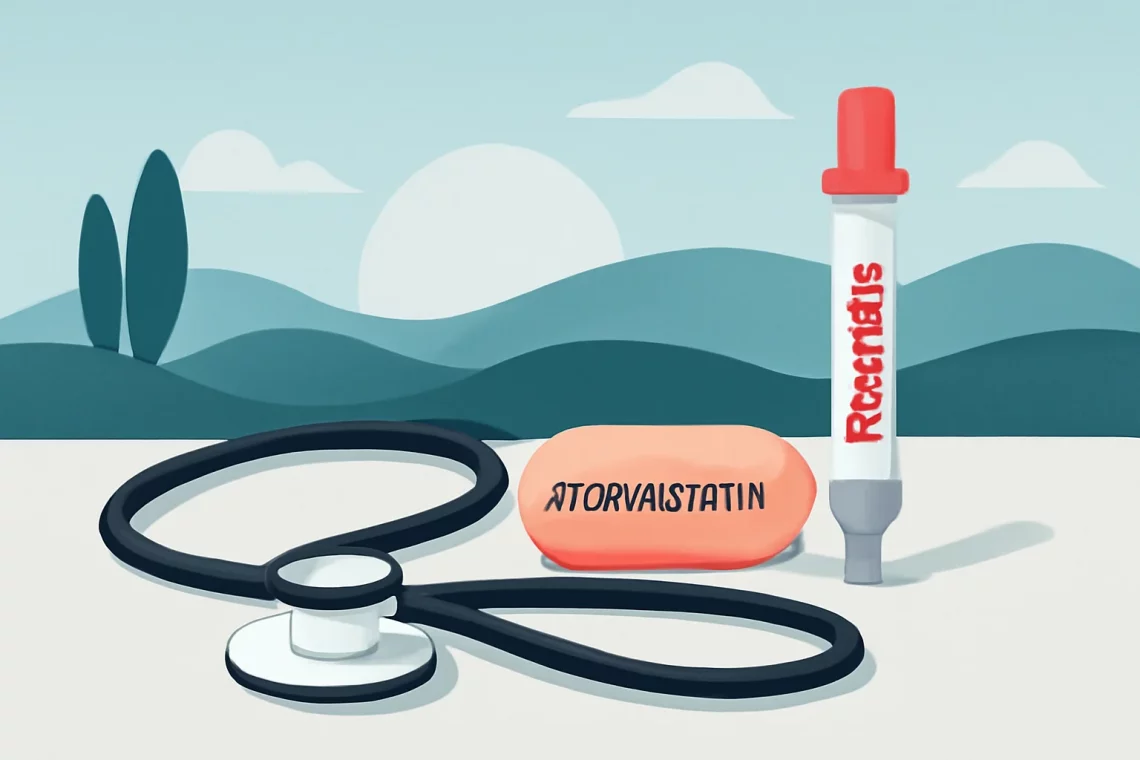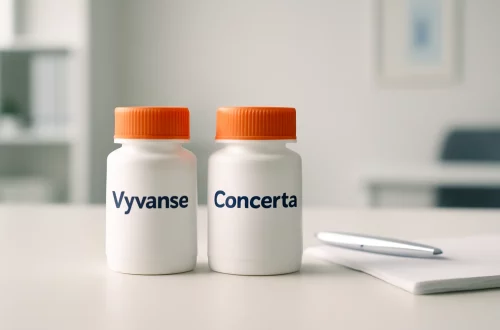
Atorvastatin vs Repatha: Which Cholesterol Treatment is Better?
Atorvastatin and Repatha represent two distinct approaches to managing cholesterol levels and reducing cardiovascular risk. As cardiovascular diseases continue to be a leading cause of mortality worldwide, the importance of effective cholesterol management cannot be overstated. Elevated levels of low-density lipoprotein (LDL) cholesterol are a significant risk factor for heart attacks and strokes, prompting the need for medications that can effectively lower these levels.
Atorvastatin, a member of the statin family, has been widely used for years as a first-line treatment for high cholesterol. It works by inhibiting an enzyme involved in cholesterol production in the liver, thus reducing LDL cholesterol levels. On the other hand, Repatha, a monoclonal antibody, represents a newer class of medications known as PCSK9 inhibitors. This innovative therapy works differently by targeting a specific protein that regulates cholesterol levels in the bloodstream, leading to significant reductions in LDL cholesterol.
Understanding the differences and similarities between these two medications can help patients and healthcare providers make informed decisions regarding cholesterol management strategies. As we delve deeper into each medication, we will explore their mechanisms, benefits, side effects, and the overall impact they have on cardiovascular health.
Mechanism of Action: How Atorvastatin and Repatha Work
Atorvastatin and Repatha operate through different mechanisms to achieve their goal of lowering LDL cholesterol. Atorvastatin is classified as a statin, which means it works by inhibiting the HMG-CoA reductase enzyme in the liver. This enzyme plays a crucial role in the synthesis of cholesterol. By blocking its action, atorvastatin reduces the overall production of cholesterol in the liver, leading to a decrease in circulating LDL cholesterol levels.
Additionally, atorvastatin enhances the liver’s ability to clear LDL cholesterol from the bloodstream by increasing the number of LDL receptors on liver cells. This dual action — reducing cholesterol production and increasing clearance — makes atorvastatin an effective option for many patients with high cholesterol.
In contrast, Repatha operates through a different pathway. It is a monoclonal antibody that inhibits the protein PCSK9 (proprotein convertase subtilisin/kexin type 9). PCSK9 binds to LDL receptors on liver cells and promotes their degradation. By inhibiting this protein, Repatha allows more LDL receptors to remain on the liver surface, thereby increasing the liver’s capacity to remove LDL cholesterol from the blood. This mechanism can lead to dramatic reductions in LDL cholesterol levels, often exceeding those achieved with statins alone.
Both medications have been shown to effectively lower LDL cholesterol, but the choice between them may depend on individual patient needs, tolerance, and the specific cholesterol levels that need to be addressed.
Benefits of Atorvastatin
Atorvastatin offers numerous benefits for patients managing high cholesterol. One of its primary advantages is its extensive clinical history and well-established efficacy. Numerous studies have demonstrated that atorvastatin can significantly reduce LDL cholesterol levels, which in turn lowers the risk of cardiovascular events such as heart attacks and strokes.
Moreover, atorvastatin has been shown to have additional pleiotropic effects beyond cholesterol reduction. These include anti-inflammatory properties and improvements in endothelial function, which may further contribute to cardiovascular protection. Some studies suggest that statins may also have a positive impact on other cardiovascular risk factors such as high blood pressure and diabetes management.
Another significant benefit of atorvastatin is its cost-effectiveness. As a generic medication, atorvastatin is often more affordable than newer therapies like Repatha, making it accessible to a broader range of patients. This affordability can be a crucial factor for patients without comprehensive insurance coverage.
However, like all medications, atorvastatin is not without its potential side effects. Common side effects may include muscle pain, liver enzyme changes, and gastrointestinal disturbances. Most patients tolerate atorvastatin well, but it is essential to monitor for any adverse effects. Regular follow-up with healthcare providers can help manage any concerns that arise during treatment.
In summary, atorvastatin has a proven track record, is cost-effective, and provides additional cardiovascular benefits, making it a commonly prescribed option for managing high cholesterol.
Benefits of Repatha
Repatha, as a PCSK9 inhibitor, offers unique advantages, particularly for patients who are at high risk for cardiovascular events or those who have not achieved their cholesterol targets with statins alone. One of the most significant benefits of Repatha is its ability to lower LDL cholesterol levels dramatically. In clinical trials, Repatha has shown reductions in LDL cholesterol of up to 60% or more when used in conjunction with statins.
This considerable reduction can be life-changing for patients with familial hypercholesterolemia or those with a history of cardiovascular events who require more aggressive cholesterol management. The ability of Repatha to provide such significant LDL lowering makes it an essential option for high-risk populations.
Additionally, Repatha has been associated with a reduction in cardiovascular events, including heart attacks and strokes, in patients with established cardiovascular disease. This provides reassurance that not only does Repatha lower cholesterol, but it also contributes to long-term cardiovascular health.
Another benefit of Repatha is its route of administration. Unlike atorvastatin, which is taken daily in pill form, Repatha is administered via an injection, typically once every two to four weeks. For some patients, this may be a more convenient option, especially for those who prefer not to take daily medication.
However, it is essential to consider the potential downsides. Repatha can be significantly more expensive than atorvastatin, which may limit access for some patients. Additionally, as a relatively newer medication, it may have less extensive long-term safety data compared to statins.
In conclusion, Repatha offers potent LDL cholesterol-lowering capabilities and cardiovascular event reduction, making it a valuable option for specific patient populations, particularly those with high cholesterol levels that require more intensive treatment.
Potential Side Effects and Considerations
Both atorvastatin and Repatha come with potential side effects and considerations that patients should be aware of. Understanding these can help patients and healthcare providers make informed decisions about treatment options.
Atorvastatin, while generally well-tolerated, can cause side effects in some individuals. Commonly reported side effects include muscle pain, weakness, and, in rare cases, severe muscle damage known as rhabdomyolysis. Patients may also experience liver enzyme abnormalities, which necessitate regular monitoring of liver function.
Some individuals may also report gastrointestinal issues such as nausea, diarrhea, or constipation. Although most patients can manage these side effects, they can impact adherence to therapy. It is crucial for patients to communicate any adverse effects with their healthcare provider, as dose adjustments or alternative treatments may be necessary.
On the other hand, Repatha, as a monoclonal antibody, presents a different profile of side effects. Injection site reactions, such as redness, swelling, or itching, are common but generally mild. Some patients may also experience flu-like symptoms or allergic reactions. Given that Repatha is a newer medication, ongoing research continues to evaluate its long-term safety profile.
Patients considering either atorvastatin or Repatha should also discuss their complete medical history with their healthcare provider. Certain factors, such as liver disease, kidney issues, or a history of muscle problems, may influence the choice of therapy. Furthermore, lifestyle factors such as diet, exercise, and smoking cessation play a crucial role in managing cholesterol levels and overall cardiovascular health.
Ultimately, both atorvastatin and Repatha have their benefits and risks. The choice between them should be individualized based on a patient’s specific health needs, risk factors, and preferences.
**Disclaimer:** This article is for informational purposes only and should not be considered medical advice. Always consult a healthcare professional for any health-related questions or concerns.




